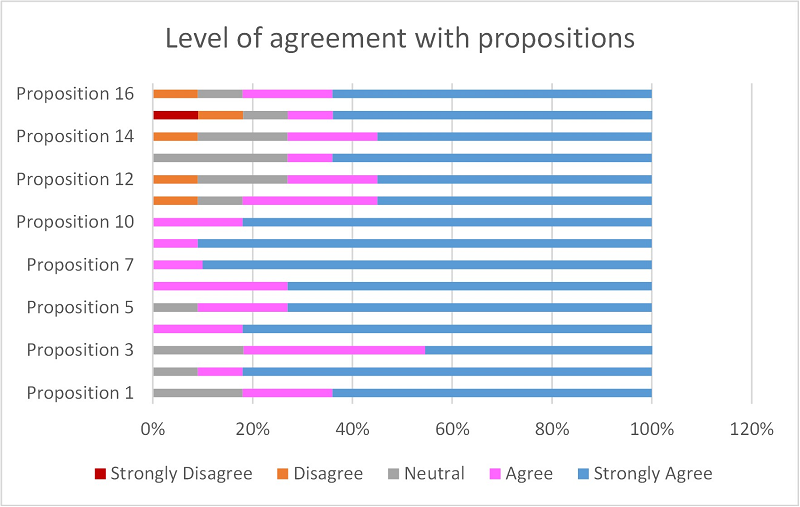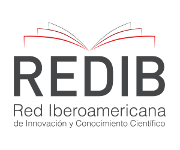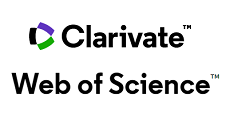
Published
Towards a Theory of Interoperability of Software Systems
Hacia una teoría de interoperabilidad de los sistemas de software
DOI:
https://doi.org/10.15446/ing.investig.102248Keywords:
Interoperability, Axiomatic theory, Software system, Axiom, Proposition, Expert consultation (en)Interoperabilidad, Teoría axiomática, Sistema de software, Axioma, Proposición, Consulta de expertos (es)
Downloads
Interoperability is a property of software quality that is related to the cooperation between software systems for exchanging information. However, this concept is not well explained or understood. A theory would be useful to explain interoperability in terms of its essential elements and propositions. Theoretical contributions of interoperability are intended to formalize this concept by using common frameworks, models, and meta-models. However, tentative contributions developed in the past have failed to propose a theory of interoperability due to four reasons: (1) a disunified vocabulary is used, (2) the essential elements for describing interoperability are not well identified, (3) only a single level of interoperability is assessed, and (4) interoperability principles are not well formalized. This paper tentatively proposes an axiomatic theory of interoperability as a complementary approach to the existing knowledge. The proposed theory seeks to better formalize the concepts of interoperability and suggest actions aimed at establishing interoperability. After a brief review of related works and the state of the art, a set of axioms and propositions is presented. This theory is evaluated by a group of experts, and an example is presented to illustrate its use. Conclusions and future works are outlined at the end of the paper.
La interoperabilidad es una propiedad de calidad del software que tiene que ver con la cooperación entre sistemas de software para intercambiar información. Sin embargo, este concepto carece de una explicación o un completo entendimiento. Una teoría permitiría explicar la interoperabilidad en términos de sus elementos esenciales y proposiciones. Las contribuciones teóricas acerca de la interoperabilidad proponen formalizar este concepto utilizando marcos comunes, modelos y metamodelos. No obstante, las contribuciones tentativas desarrolladas en el pasado no logran proponer una teoría. Esto, debido a cuatro razones: (1) usan un vocabulario desunificado, (2) omiten los elementos esenciales para describir la interoperabilidad, (3) se enfocan en un nivel particular de interoperabilidad y (4) presentan una formalización incompleta con respecto a los principios de interoperabilidad. En este artículo se propone una teoría axiomática de interoperabilidad como un enfoque complementario al conocimiento existente. Con la teoría propuesta se pretende formalizar los conceptos de interoperabilidad y sugerir acciones para establecer la interoperabilidad. Con base en una revisión de los trabajos relacionados y el estado del arte, se define un conjunto de axiomas y proposiciones. Un conjunto de expertos valida la teoría, y se expone un ejemplo para ilustrar su uso. Las conclusiones y los trabajos futuros se describen al final del artículo.
References
Burns, T., Cosgrove, J., and Doyle, F. (2019). A review of interoperability standards for industry 4.0. Procedia Manufacturing, 38(1), 646-653. https://doi.org/10.1016/J.PROMFG.2020.01.083
Brilhault, Q., Yahia, E., and Roucoules, L. (2022). Qualitative analyses of semantic interoperability approaches: toward learning based model transformations. IFAC-PapersOnLine, 55(10), 2348-2353. https://doi.org/10.1016/J.IFACOL.2022.10.059
Burzlaff, F., Wilken, N., Bartelt, C., and Stuckenschmidt, H. (2019). Semantic interoperability methods for smart service systems: A survey. IEEE Transactions on Engineering Management, 69(6), 4052-4066. https://doi.org/10.1109/TEM.2019.2922103
Challita, S., Zalila, F., and Merle, P. (2018). Specifying semantic Interoperability between heterogeneous cloud re-sources with the FCLOUDS formal language [Conference presentation]. IEEE International Conference on Cloud Com-puting, San Francisco, CA, USA. https://doi.org/10.1109/CLOUD.2018.00053
Davies, J., Welch, J., Milward, D., and Harris, S. (2020). A formal, scalable approach to semantic interoperability. Science of Computer Programming, 192(1), 102426. https://doi.org/10.1016/J.SCICO.2020.102426
Delgado, A., Calegari, D., González, L., Montarnal, A., and Benaben, F. (2020, January 7-10). Towards a metamodel sup-porting e-government collaborative business processes management within a service-based interoperability platform [Conference presentation]. 53rd Hawaii International Conference on System Sciences, Maui, HI, USA. https://doi.org/10.24251/HICSS.2020.246
Fraga, A. L., Vegetti, M., and Leone, H. P. (2020). Ontology-based solutions for interoperability among product lifecycle management systems: A systematic literature review. Journal of Industrial Information Integration, 20(1), 100176. https://doi.org/10.1016/J.JII.2020.100176
Haile, N., and Altmann, J. (2018). Evaluating investments in portability and interoperability between software service platforms. Future Generation Computer Systems, 78(1), 224-241. http://dx.doi.org/10.1016/j.future.2017.04.040
Horcas, J.M., Pinto, M., and Fuentes, L. (2023). A modular metamodel and refactoring rules to achieve software product line interoperability. Journal of Systems and Software, 197(1). https://doi.org/10.1016/J.JSS.2022.111579
International Organization for Standardization (2008). Software engineering – Software product quality requirements and evaluation (SQuaRE) quality model (ISO/IEC 25010:2008). ISO.
International Organization for Standardization (2011). Advanced automation technologies and their applications -- Requirements for establishing manufacturing enterprise process interoperability -Part 1: Framework for enterprise interoperability (ISO 11354:2011). ISO.
Jepsen, S.C., Worm, T., Mork, T. I., and Hviid, J. (2021, Jun 3-3). Industry 4.0 middleware software architecture interoperability analysis [Conference presentation]. 3rd International Work-shop on Software Engineering Research and Practices for the IoT (SERP4IoT), Madrid, Spain. https://doi.org/10.1109/SERP4IoT52556.2021.00012
Lafourcade, P., and Lombard-Platet, M. (2020). About blockchain interoperability. Information Processing Letters, 161(1), 105976. https://doi.org/10.1016/J.IPL.2020.105976
Liu, L., Li, W., Aljohani, N. R., Lytras, M. D., Hassan, S. U., and Nawaz, R. (2020). A framework to evaluate the interoperability of information systems – Measuring the maturity of the business process alignment. International Journal of Information Management, 54, 102153. https://doi.org/10.1016/J.IJINFOMGT.2020.102153
Mistry, P., Maguire, D., Chikwira, L., and Lindsay, T. (2022). Interoperability is more than technology. The King's Fund. https://www.kingsfund.org.uk/sites/default/files/2022-09/Interoperability%20is%20more%20than%20technology%20report.pdf
Ribeiro, E. L. F., Vieira, M. A., Claro, D. B., and Silva, N. (2018, March 19-21). Transparent interoperability middleware be-tween data and service cloud layers [Conference presentation]. CLOSER, Funchal, Portugal. https://doi.org/10.5220/0006704101480157
Sana, K., Hassina, N., and Kadda, B. B. (2021, April 9-11). To-wards a reference architecture for interoperable clouds [Conference presentation]. 2021 8th International Conference on Electrical and Electronics Engineering, Antalya, Turkey. https://doi.org/10.1109/ICEEE52452.2021.9415944
Serapião, G. Guédria, W., and Panetto, H. (2019). An ontology for interoperability assessment: A systemic approach. Computer in Industry, 16(1), 100100. https://doi.org/10.1016/j.jii.2019.07.001
Sjøberg, I. K., Dybå T., Anda B. C. D., and Hannay, J. E. (2008). Building theories in software engineering. In F. Shull, J. Singer, and D. I. K. Sjøberg (Eds.), Guide to Advanced Empirical Soft-ware Engineering (pp. 312-336). Springer. https://doi.org/10.1007/978-1-84800-044-5_12
Software Engineering Group (2007). Guidelines for performing systematic literature reviews in software engineering (EBSE-2007-001). School of Computer Science and Mathematics, Keele University. https://www.elsevier.com/__data/promis_misc/525444systematicreviewsguide.pdf
Tall, D. (2004). Building theories: The three worlds of mathematics. For the Learning of Mathematics, 24(1), 29-32.
Torab-Miandoab, A., Samad-Soltani, T., Jodati, A., and Rezaei-Hachesu, P. (2023). Interoperability of heterogeneous health information systems: a systematic literature review. BMC Medical Informatics and Decision Making, 23, 18. https://doi.org/10.1186/s12911-023-02115-5
Torres, D. M., Villavicencio, M. K., and Zapata, C. M. (2022). Representing interoperability between software systems by using pre-conceptual schemas. International Journal on Electrical Engineering and Informatics, 14(1), 101-127. https://doi.org/10.15676/ijeei.2022.14.1.7
Torres, D. M., Villavicencio, M. K., and Zapata, C. M. (2018, August 29-31). Towards a terminology unification in software interoperability [Conference presentation]. 44th Euromicro Conference on Software Engineering and Advanced Applications (SEAA), Prague, Czech Republic. https://doi.org/10.1109/SEAA.2018.00083
Turk, Z. (2020). Interoperability in construction – Mission impossible? Developments in the Built Environment, 4(1), 100018. https://doi.org/10.1016/j.dibe.2020.100018
von der Gracht, H. A. (2012). Consensus measurement in Delphi studies: Review and implications for future quality assurance. Technological Forecasting and Social Change, 79(8),1525-1536. https://doi.org/10.1016/j.techfore.2012.04.013
How to Cite
APA
ACM
ACS
ABNT
Chicago
Harvard
IEEE
MLA
Turabian
Vancouver
Download Citation
License
Copyright (c) 2023 Diana Maria Torres Ricaurte

This work is licensed under a Creative Commons Attribution 4.0 International License.
The authors or holders of the copyright for each article hereby confer exclusive, limited and free authorization on the Universidad Nacional de Colombia's journal Ingeniería e Investigación concerning the aforementioned article which, once it has been evaluated and approved, will be submitted for publication, in line with the following items:
1. The version which has been corrected according to the evaluators' suggestions will be remitted and it will be made clear whether the aforementioned article is an unedited document regarding which the rights to be authorized are held and total responsibility will be assumed by the authors for the content of the work being submitted to Ingeniería e Investigación, the Universidad Nacional de Colombia and third-parties;
2. The authorization conferred on the journal will come into force from the date on which it is included in the respective volume and issue of Ingeniería e Investigación in the Open Journal Systems and on the journal's main page (https://revistas.unal.edu.co/index.php/ingeinv), as well as in different databases and indices in which the publication is indexed;
3. The authors authorize the Universidad Nacional de Colombia's journal Ingeniería e Investigación to publish the document in whatever required format (printed, digital, electronic or whatsoever known or yet to be discovered form) and authorize Ingeniería e Investigación to include the work in any indices and/or search engines deemed necessary for promoting its diffusion;
4. The authors accept that such authorization is given free of charge and they, therefore, waive any right to receive remuneration from the publication, distribution, public communication and any use whatsoever referred to in the terms of this authorization.


























